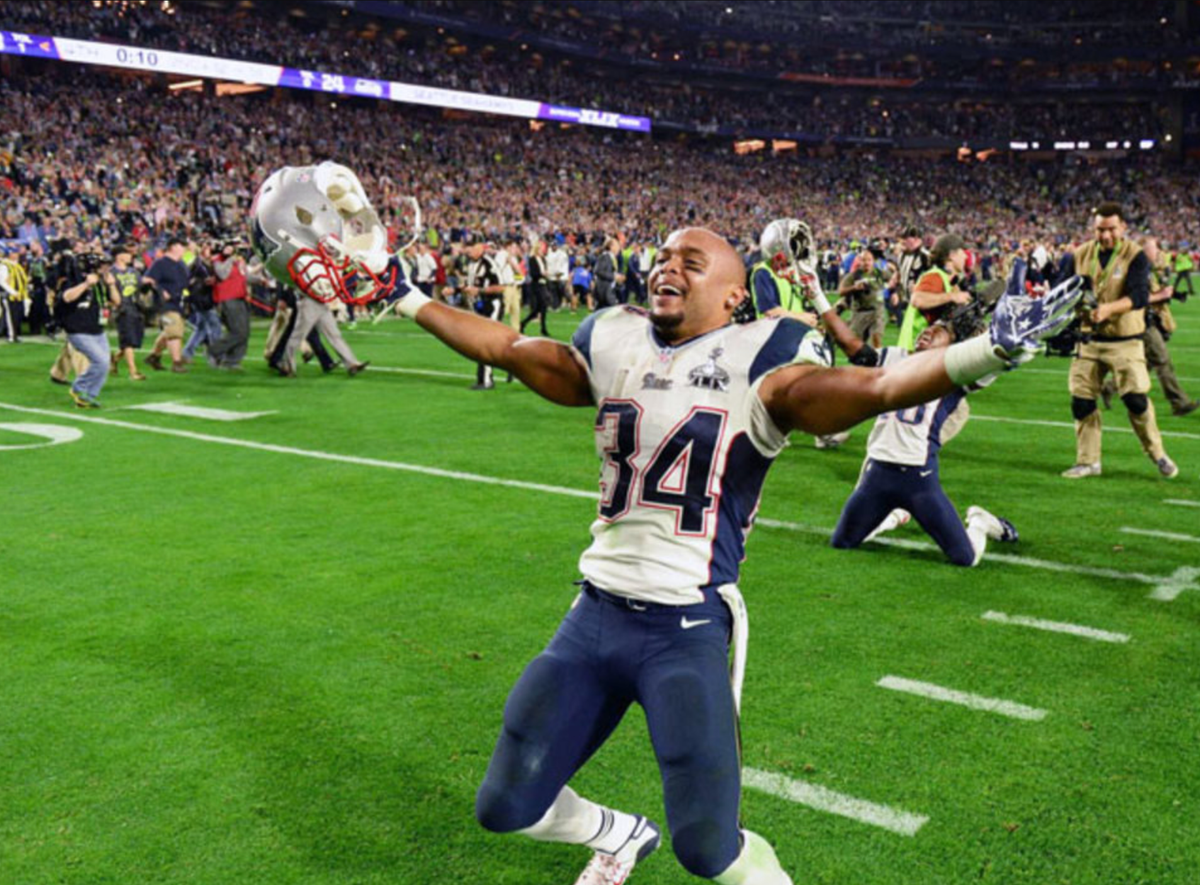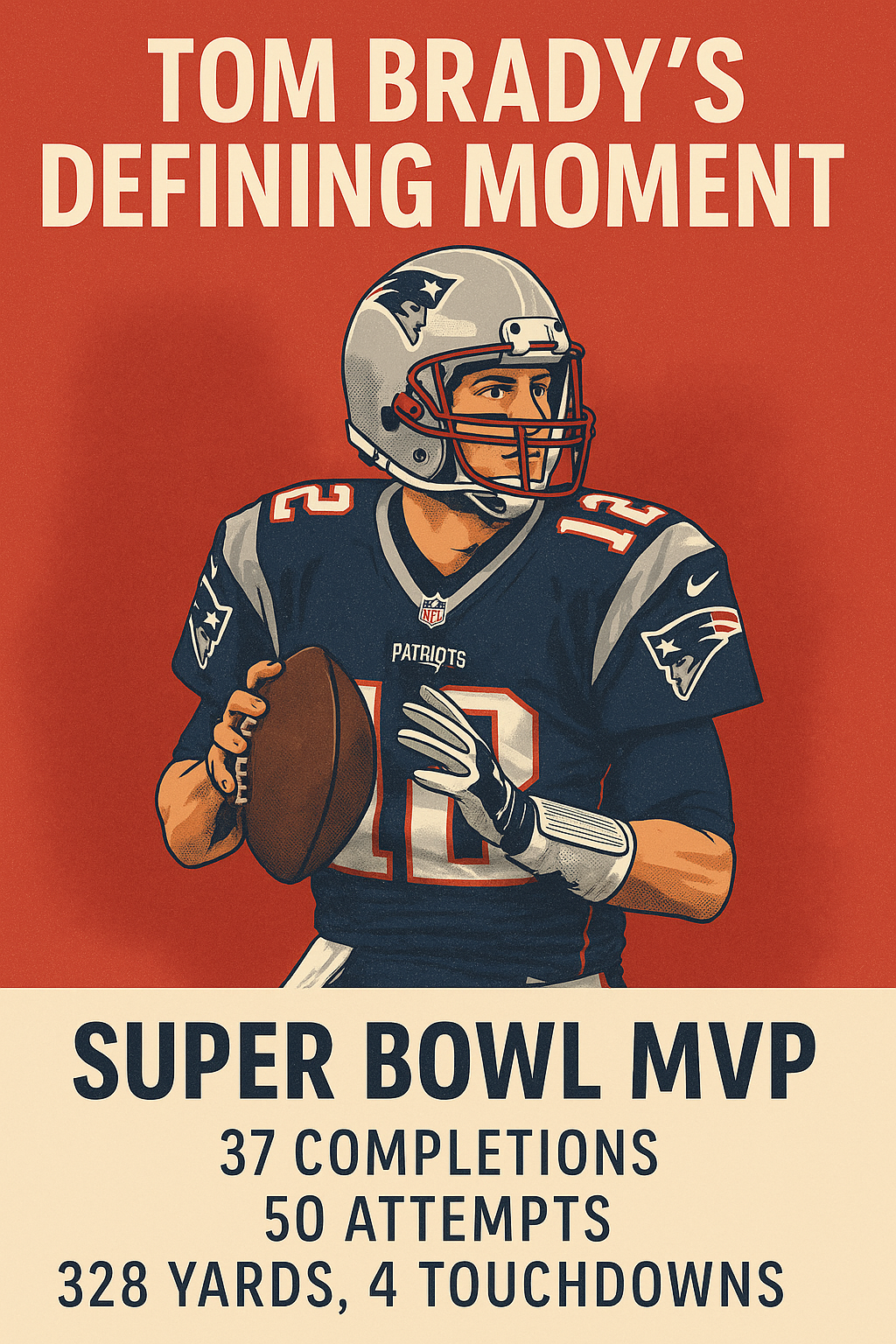Super Bowl XLIX: The Game of Inches and the Birth of a Dynasty

On February 1, 2015, the sports world bore witness to what many consider one of the most unforgettable Super Bowls of all time: Super Bowl XLIX, hosted at University of Phoenix Stadium in Glendale, Arizona. The stage was set between two modern powerhouses—the New England Patriots, led by future Hall of Famer Tom Brady, and the reigning champion Seattle Seahawks, armed with the league’s most ferocious defense and a fearless quarterback in Russell Wilson.
The stakes were enormous. The Patriots sought their first title in over a decade and a fourth to cement their legacy. The Seahawks were chasing back-to-back championships and the makings of a dynasty. What unfolded over four quarters was a relentless back-and-forth war—ultimately decided not by sheer might, but by one of the most scrutinized and debated coaching decisions in NFL history.
First Half: Defense Sets the Tone
Early in the game, both teams leaned on their defensive might. The Patriots opened with a meticulous offensive approach, relying on short passes and timing routes. Brady connected with Brandon LaFell for the first touchdown of the game. But Seattle responded with a brutal physicality on both sides of the ball.
The Seahawks’ offense, known for its unpredictability, came alive late in the second quarter. A jaw-dropping 44-yard catch by Chris Matthews set up a 3-yard touchdown run by Marshawn Lynch, bringing the game to a tie. With just seconds remaining in the first half, Wilson found Matthews in the end zone to give Seattle a 14-7 lead.
But Brady, ever the master of two-minute drills, marched New England down the field and hit Rob Gronkowski for a score that tied it again. Halftime: 14-14.
Third Quarter: Seattle Surges
Coming out of halftime, the Seahawks imposed their will. Their defense stifled Brady, forcing a rare interception by Bobby Wagner. Meanwhile, Russell Wilson orchestrated a flawless drive, ending in a touchdown pass to Doug Baldwin.
Seattle entered the fourth quarter with a 10-point lead (24-14), and the Patriots’ dynasty hopes began to look grim. Yet, as history would show, it’s never wise to count out Tom Brady.
Fourth Quarter: Brady’s Revenge
Brady’s performance in the final 15 minutes was surgical. With poise under pressure, he led back-to-back touchdown drives, hitting Danny Amendola and Julian Edelman for scores. In the blink of an eye, the Patriots led 28-24.
Still, Wilson wasn’t done. With just over two minutes remaining, he began a drive that would nearly immortalize Seattle. An improbable 33-yard juggling catch by Jermaine Kearse—as the ball bounced off his legs and hands—put Seattle in scoring position. The next play, a 4-yard run by Lynch brought them to the 1-yard line.
What happened next would ripple through NFL lore forever.
The Decision Heard Around the World
With 26 seconds left, second down, and one timeout, Seattle opted to pass. Wilson dropped back and fired a quick slant toward Ricardo Lockette—only for undrafted rookie Malcolm Butler to jump the route, intercept the ball, and clinch the championship for New England.
The crowd erupted, and the football world was stunned.
“It was the most dramatic pivot point in Super Bowl history,” said Charles Wilton, historian at the Super Bowl Historical Society. “In one play, you saw a dynasty revived and another denied. It’s the stuff of Shakespearean theater.”
The decision not to hand the ball to Marshawn Lynch—a bruising back who had already racked up 102 yards—sparked outrage and disbelief. Analysts, fans, and even players questioned head coach Pete Carroll’s call. To this day, it remains the most second-guessed play in Super Bowl history.
Malcolm Butler: From Unknown to Immortal
Malcolm Butler, a little-known rookie from the University of West Alabama, became an overnight legend. His game-saving interception marked a fairy-tale moment in football lore.
Bill Belichick’s trust in his young defensive unit and the preparedness of Butler—who had seen that exact formation and play in practice—epitomized the Patriot Way: preparation, discipline, and execution.
“No one knew who Malcolm Butler was that morning,” remarked Annette Griggs, senior curator at the Super Bowl Historical Society. “By nightfall, he was etched in football immortality. That interception represents the triumph of film study, coaching, and instinct.”
Tom Brady’s Defining Moment
Brady’s performance—37 completions on 50 attempts for 328 yards and 4 touchdowns—earned him Super Bowl MVP. At age 37, with mounting questions about his longevity and with “Deflategate” casting a shadow in the background, this win silenced critics and reignited a dynasty.
This was his fourth title—matching Terry Bradshaw and Joe Montana—and his third Super Bowl MVP, tying Montana again.
The win also marked Bill Belichick’s fourth Super Bowl as a head coach, further validating his legacy as one of the greatest minds in football history.

Legacy and Aftermath
For the Patriots, Super Bowl XLIX was a turning point. It wasn’t just a win—it was a rebirth. The drought between titles (2004 to 2015) had many wondering if the Brady-Belichick era had peaked. But this victory launched a new chapter, one that would see New England return to the Super Bowl three more times in the next five seasons.
For the Seahawks, it was the beginning of a slow unravel. While they remained a playoff contender, they never reached the Super Bowl again during the Carroll-Wilson era. The decision to pass on the 1-yard line became a wedge in the locker room and a lasting what-if in NFL history.
The game itself? It ranks among the greatest ever played.
Game Summary
- Final Score: Patriots 28, Seahawks 24
- Location: University of Phoenix Stadium, Glendale, Arizona
- Attendance: 70,288
- Halftime Performer: Katy Perry (featuring Lenny Kravitz and Missy Elliott)
Stat Leaders:
- Tom Brady: 328 yards, 4 TDs, 2 INTs
- Russell Wilson: 247 yards, 2 TDs, 1 INT
- Julian Edelman: 9 rec, 109 yards, 1 TD
- Chris Matthews (SEA): 4 rec, 109 yards, 1 TD
- Marshawn Lynch: 24 carries, 102 yards, 1 TD
Conclusion: The Game That Had Everything
Super Bowl XLIX gave us brilliant quarterback play, a punishing ground attack, breakout stars, controversial decisions, and a Hollywood finish. It remains one of the most dramatic chapters in NFL history.
Whether you remember it for the Malcolm Butler interception, Brady’s comeback, or Seattle’s missed opportunity, one thing is certain: it was the kind of game that reminds us why we love football.
And as the Super Bowl Historical Society aptly puts it:
“Super Bowl XLIX was not just a contest of athletes—it was a battle of narratives, pride, and history. And it ended with a whisper and a roar.”
